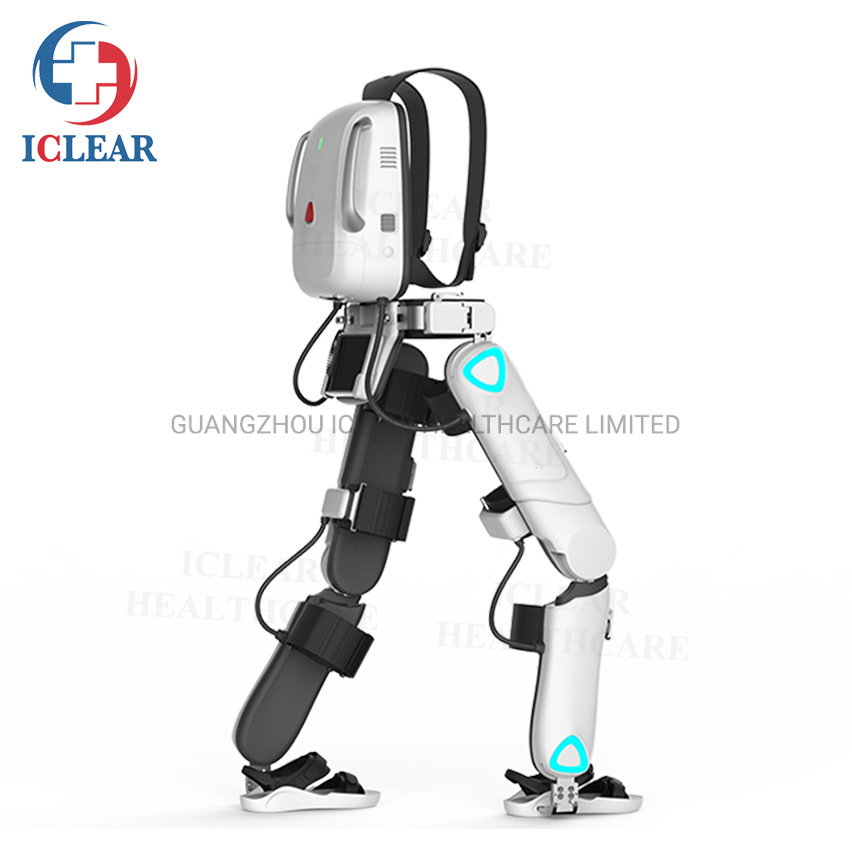CHP-HJ1 is a new type of wearable lower extremity exoskeleton robot for assisting the gait rehabilitation training of stroke patients. The robot has active and passive training mode. It can save manpower and improve rehabilitation effect by providing assistance to patients' hip, knee and ankle joints to complete walking training.
CHP-HJ1 exoskeleton robot is the world's first rehabilitation exoskeleton robot with compliant actuators.
CHP-HJ1 has 6 powered joints (bilateral hips, knees, ankles) and hip rotation auxiliary joints to achieve natural gait. It is suitable for patients between 150 and 190 cm in height and weighing less than 85 kg. The size of exoskeleton is adjustable, and gait monitoring and evaluation system is equipped. Physical therapists or family members can monitor the patient's motion data through the touch screen in real time.
The CHP-HJ1 robot is also equipped with many sensors that can detect the movement status of the human body in real time. And the AI algorithm developed by the robot can predict the human body's intention, such as the speed of movement, start and stop, left leg or right leg, etc. These information will be collected and used to control the robot.
Medical Lower Limb Rehabilitation Exoskeleton Robot Suit Physical Therapy Gait Training Equipment
CHP-HJ1

CHP-HJ1 is a new type of wearable lower extremity exoskeleton robot for assisting the gait rehabilitation training of stroke patients. The robot has active and passive training mode. It can save manpower and improve rehabilitation effect by providing assistance to patients' hip, knee and ankle joints to complete walking training.
CHP-HJ1 exoskeleton robot is the world's first rehabilitation exoskeleton robot with compliant actuators.
CHP-HJ1 has 6 powered joints (bilateral hips, knees, ankles) and hip rotation auxiliary joints to achieve natural gait. It is suitable for patients between 150 and 190 cm in height and weighing less than 85 kg. The size of exoskeleton is adjustable, and gait monitoring and evaluation system is equipped. Physical therapists or family members can monitor the patient's motion data through the touch screen in real time.
The CHP-HJ1 robot is also equipped with many sensors that can detect the movement status of the human body in real time. And the AI algorithm developed by the robot can predict the human body's intention, such as the speed of movement, start and stop, left leg or right leg, etc. These information will be collected and used to control the robot.

